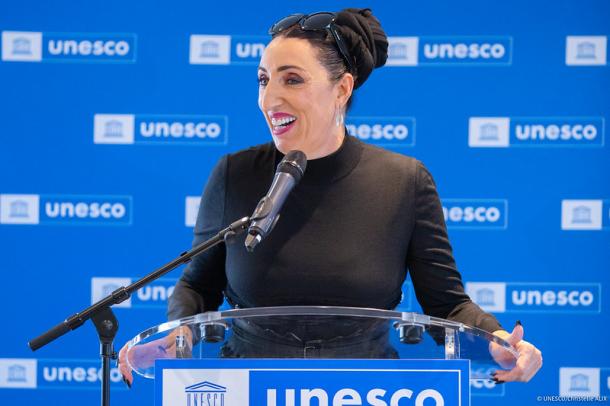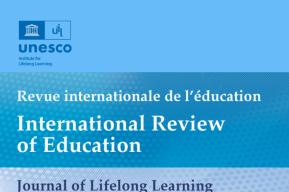News
Rossy de Palma: “We must celebrate what unites us”

Interview by Monia Adjiwanou
What does this appointment as UNESCO Goodwill Ambassador for Cultural Diversity mean to you? Why do you think that cultural diversity is so important today?
First, it is a pride, a privilege, an honor and a responsibility for me to be appointed as a UNESCO Goodwill Ambassador. I am a person with an overflowing curiosity, and I think that curiosity is the key to youth. I have great respect for the work of UNESCO. I feel fulfilled: this appointment gives me the keys to claim things that I would not have dared to claim personally.
I have always seen cultural diversity as a richness, a present. UNESCO can bring us together around the things that unite us, such as culture and tangible and intangible heritage. We must celebrate what unites us, that’s why I am proud and delighted to be part of this family.
You have already collaborated with UNESCO in 2020 for the “United Against Racism” campaign. Today, this appointment marks the beginning of a long-term collaboration. Can you tell us what UNESCO means to you?
I would define UNESCO as a generous and wonderful “grandmother”, very essential for humanity. In a world where politicians disagree and act like divorced parents who don’t understand each other, UNESCO is for me a devoted “grandmother” with generous curves and huge skirts where grandchildren can embrace one another and find the maternal warmth, understanding and compassion that the world needs. Moreover, this “grandmother” gives us a taste of the different flavors of memory and protects the essential things in life.
You actively promote African cultural diversity, sharing African art and cinema on social media and participating in fashion shows. When and how did you start collaborating with African artists?
I have felt a little African since a very young age, and long before I visited sub-Saharan Africa – I can’t explain why. Moreover, I have always been very sensitive to the issue of migration, to these deaths that occur in the Mediterranean Sea on makeshift boats. I am aware of the fragile nature of migration, and this is also what has brought me closer to Africa, this moral debt the West owes to the African continent.
I have developed a deep relationship with Africa. A part of my family lives in Senegal, so I regularly travel there and to other African countries, to gain a deeper understanding of African culture. I feel very good there. There are many aspects of culture and craft that I find interesting, not only in Africa, but also among indigenous peoples in general. These peoples are very inspiring, and this can be seen in the fields of culture and fashion, where cultural appropriation is a quite recurrent phenomenon. It’s one thing to be inspired, but it’s another thing to take elements from other cultures without specifying their origin. As an artist, I have the feeling that I can be inspired by anything, as long as I make it clear that it is a tribute, an inspiration. When Picasso started his African-inspired art. I don’t think that he
wanted to appropriate African art, but rather to pay tribute to it. There is a difference between stealing something and paying tribute to it. You always have to be clear about your sources of inspiration.
You have spoken about gender equality on several occasions. In your opinion, what is the priority in this fight today?
The first priority is equal pay for equal work, and I think that’s the minimum we should demand. It seems incredible to have to ask for something that is so obvious. For the same work, the salary should be the same for a man as for a woman. I think that all governments and all presidents should take action on this.
I think that we women are living through a very important time of change, and in the first place, this journey must be an inner journey for us. We know the society, we know our children, we know our husbands, we have been curious about everything, we have fought a lot. Yet we don’t know ourselves very well. We have used men as a mirror in order to be treated like them, but today this mirror is not useful anymore.
The patriarchy of our generations has shattered women’s self-esteem, it has put us aside and made us feel less important; we have started to fear men. This lack of self-esteem that we have developed during all these centuries has provoked a lack of curiosity about ourselves, and that’s why today we don’t know ourselves very well.
We women, as a feminine entity, are blossoming, because we are all making this inner journey, this introspection. What do we want? What do we like? Why don’t we know ourselves? It is wonderful that so many female scenarists and directors are stepping forward to tell things from an original and innovative point of view, precisely because we are beginning to know ourselves.
It is for us to learn to love ourselves. There is no turning back, there are things we can’t tolerate anymore. we are much more liberated and empowered, and it’s just the beginning.







